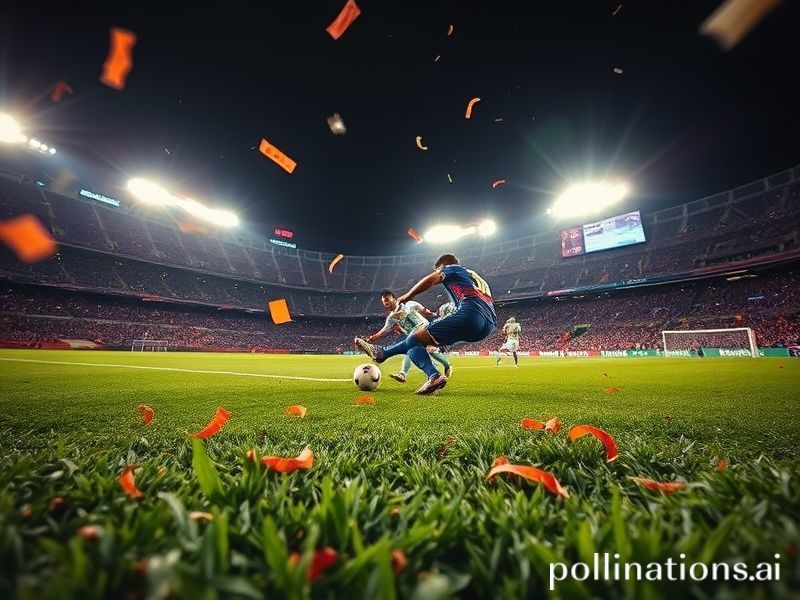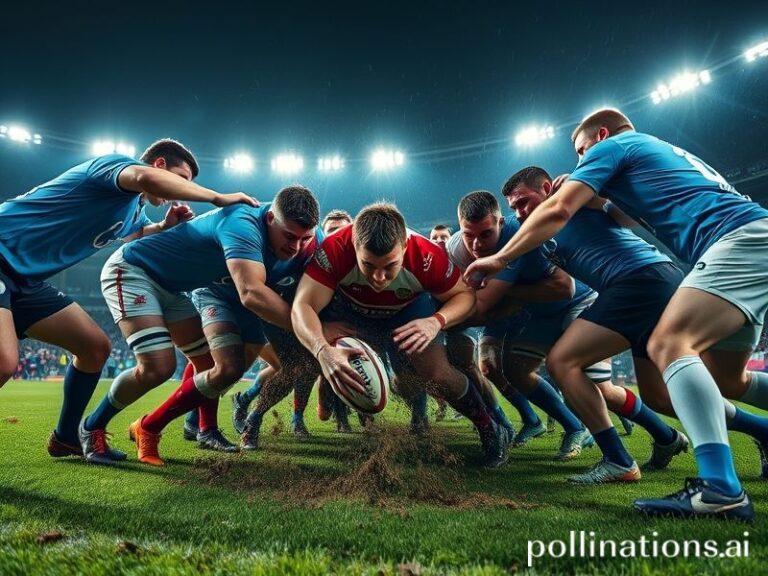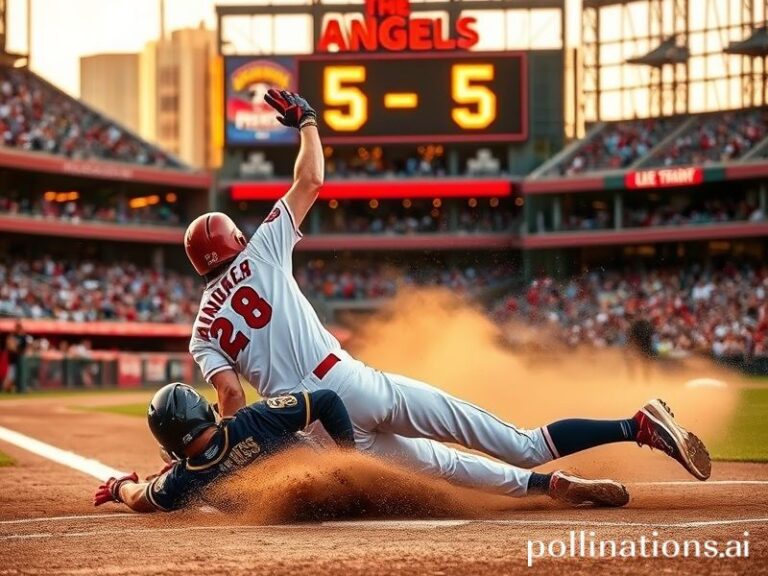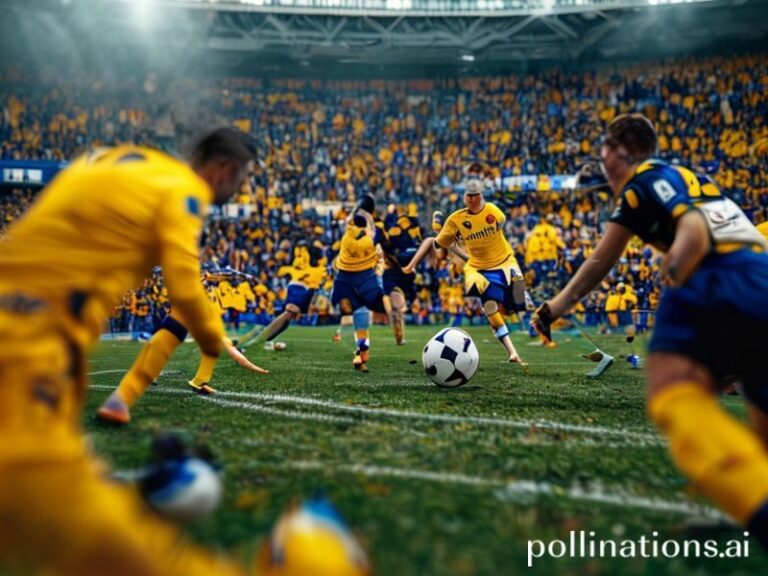Barcelona vs. Getafe: The Beautiful Game’s Ugly Mirror to a Fractured World
Barcelona vs. Getafe: A Micro-El Clásico in the Shadow of a Burning Planet
By the time the Camp Nou—sorry, the Spotify Camp Nou—flickers to life this Sunday, half the planet will already be doom-scrolling about methane leaks, crypto crashes, or whichever missile test North Korea scheduled for prime time. Yet, in a tidy 105 × 68 m rectangle of hyper-irrigated grass, twenty-two millionaires in luminous coral and toothpaste-blue will attempt to remind us that the fate of Western civilization still hinges on whether a 36-year-old Argentine cyborg can thread a pass between two parked buses. Enter Barcelona versus Getafe, a fixture so routinely billed as “routine” that international audiences only notice when someone gets bitten, racially abused, or discovers a novel tax loophole in the process.
Globally, the match is a Rorschach test. In Singaporean trading rooms, algorithms translate every misplaced touch into fractional shifts on Barça’s junk-rated bonds. In Lagos, viewing-party promoters hawk “VIP rooftop experiences” promising shaky Wi-Fi and lukewarm Star. Meanwhile, in suburban Connecticut, a hedge-fund intern toggles between the stream and a Bloomberg terminal, wondering if Pedri’s hamstring is a leading indicator for European natural-gas futures. Such is the modern economy: if you can monetize angst, you can monetize Jordi Alba’s mood swings.
Getafe arrive like a geopolitical spoiler state—compact, irritable, and allergic to possession the way certain governments are allergic to press freedom. Coach José Bordalás has built a side that defends in the manner of a heavily indebted nation protecting its last export commodity. They foul early, counter late, and treat the ball the way one treats an unsolicited call from a cryptocurrency exchange. Internationally, they are the football equivalent of a sanctions regime: ugly, effective, and impossible to ignore when they start working.
Barcelona, for their part, continue their delicate balancing act between moral grandiosity and financial origami. The club that once claimed to be “more than a club” now spends its afternoons negotiating deferred wages like a Mediterranean Houdini. Their latest economic lever—selling 25 % of future TV rights to anyone with a pulse and a Cayman Islands PO box—has turned the balance sheet into performance art. Yet the squad remains stacked with enough adolescent prodigies to stock a Netflix casting call. Gavi looks like he still gets carded for energy drinks; Frenkie de Jong runs like a man who knows his paycheck is stuck in escrow; and Robert Lewandowski, veteran of so many Champions League collapses he could teach a masterclass on impermanence, simply keeps scoring as if goals were a hedge against inflation.
The worldwide implications? Subtle but real. A thumping Barça win reassures global investors that the Catalan phoenix can still rise from ashes scented with truffle oil and defaulted debt. A Getafe smash-and-grab, on the other hand, validates every cynic who insists that beauty is bankrupt and only the grim prosper. Either outcome will ripple through social media ecosystems faster than a Putin decree, spawning memes in Jakarta, hot-takes in Houston, and at least one think-piece in The Economist linking pressing intensity to global supply-chain resilience.
Let’s not forget the referees, those lonely arbiters of truth in a post-truth world. Armed with semi-automated offside tech and VAR so precise it could split an atom—or a marriage—they remain the only people on Earth paid to watch slow-motion replays of other people’s mistakes. Their decisions will be dissected by pundits from Montevideo to Mumbai, each frame scrutinized like Pentagon drone footage. By Monday morning, expect at least three governments to claim the disallowed goal was a CIA plot.
Final whistle, and the globe turns back to its scheduled catastrophes. But for 90-odd minutes, Barcelona–Getafe offers the illusion that problems can still be solved by a well-weighted through-ball and a goalkeeper’s fingertip. It’s not much—certainly less than the €1.3 billion renovation budget for a stadium that may or may not be finished before Miami is underwater—but in a world auctioning off its future one NFT at a time, it’s what passes for hope. And if that isn’t worth a sarcastic slow-clap, what is?







